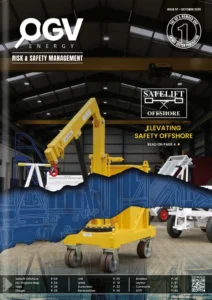UK Offshore Decommissioning Market Size Is Expected To Reach US$ 2.40B By 2031
The United Kingdom offshore decommissioning market is estimated to be valued at US$ 1.30 Bn in 2023, growing at a CAGR of 8.5% during the forecast period 2024-2031, as highlighted in a new report published by CoherentMI. Companies overviewed in this report such as Acteon Group Limited, Topicus Finan BV, Tetra Technologies Inc., Allseas Group S.A., DeepOcean Group Holding B.V., John Wood Group Plc, Exxon Mobil Corporation, Veolia Environnement S.A., Derrick Services (UK) Ltd., Perenco SA, Ramboll Group A/S, and AF Gruppen ASA.
United Kingdom Offshore Decommissioning Market is estimated to value at US$ 1.30 Billion in the year 2024, and is anticipated to reach a US$ 2.40 Billion by 2031, with growing at a CAGR of 8.5% during forecast period 2024-2031. With majority of the UK continental shelf oil and gas infrastructure reaching end of operational life in the coming years, there will be substantial decommissioning activity in the UK North Sea region. A significant number of platforms, pipelines and other structures installed in the 1960s-70s are coming towards the end of their productive lifespan. The growing inventory of ageing assets requiring decommissioning works is a major driver fueling growth of the UK offshore decommissioning market.
The growth of the UK offshore decommissioning market is attributed to ageing offshore oil and gas infrastructure and stringent government regulations regarding decommissioning of offshore assets. Many offshore platforms and pipelines installed decades ago have already outlived their design lives and are nearing the end of production. According to Oil & Gas UK, around 50 platforms in the UK North Sea need to be decommissioned by 2025. This presents significant opportunities for contractors engaged in dismantling and removal works. Moreover, regulations such as the Petroleum Act 1998 and OSPAR Decision 98/3 make operators fully responsible for environmental remediation and prevent pollution from offshore installations being abandoned. Non-compliance can lead to heavy penalties, thereby driving increased spending on decommissioning activities.
Market Trends:
Rise in complex heavy lifting projects: With numerous large platforms and modules reaching the end of their lifecycle, there is growing demand for specialized heavy lifting and marine operations. For example, in 2023-24 complex projects such as the deepwater Leviathan and Tyra platforms in Denmark and Mariner field in UK are scheduled for removal.
Advanced engineering solutions: To safely and cost-effectively dismantle huge offshore infrastructures, contractors are increasingly adopting innovative engineering technologies such as modular lifting, simultaneous operations, hydraulic shears and mega-lifts. For instance, use of floating heavy lift vessels capable of lifting 10,000 tons is transforming heavy lifting capacity in the industry.
Recent Developments:
In November 2022, there were more than 2,000 abandoned oil and gas wells in the North Sea, and the high number of abandoned wells is expected to lead to an increase in activity as operations worth US$ 21.72 billion are decommissioned and shut down. The research was conducted by industry, Offshore Energies UK (OEUK), formerly Oil & Gas UK, which provides fresh insight into petroleum decommissioning efforts.
The HAF Consortium, Heerema Marine Contractors, and AF Offshore Decom were contracted to execute the operation on behalf of Abu Dhabi National Energy Company PJSC (TAQA). The operation, which was the latest in TAQA’s extensive Uk Continental Shelf decommissioning program, involved the removal and transport of more than 12,000 metric tons of material from the Brae field in the U.K. North Sea.
Published: 16-08-2024













